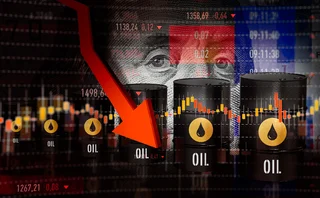Bank and investor exodus worsened oil rout, traders say
Role of financial participants in price plunge adds new twist to old debate

The collapse of the oil market in late 2014 and early 2015 has had many predictable consequences: cheaper prices at the pump; pain for oil-exporting countries such as Iran, Russia and Venezuela; and a growing bonanza of deal-making as private equity firms snap up distressed oil producers.
But perhaps one surprising effect has been a revival of the long-standing debate over the impact of speculation in commodity derivatives. As in 2008, when skyrocketing prices caused widespread public criticism
More on Oil & refined products
Energy Risk reaction: Venezuela and oil sanctions
Energy Risk talks to Rob McLeod at Hartree Partners about the energy risk implications of the US’s control of Venezuelan oil
Energy Risk Europe Leaders’ Network: geopolitical risk
Energy Risk’s European Leaders’ Network had its first meeting in November to discuss the risks posed to energy firms by recent geopolitical developments
US shutdown leaves commodity traders without key data
Commodity traders are ‘flying blind’ without Commitment of Traders reports
Energy Risk at 30: Learning from the past
Energy Risk looks back at the seminal events and developments that have shaped today’s energy markets
Why Iran tensions failed to rattle markets
Despite initial fears, traders say risks were signposted and investors had deleveraged after April
Oil and products house of the year: Macquarie Group
Energy Risk Awards: Bank pioneers innovative deals in illiquid markets, taking on esoteric risk
Podcast: should negative oil prices be allowed?
Did negative oil prices signify the market was operating effectively, or that something was wrong?
Podcast: the future of retail investment in oil
Will negative prices and big losses curb retail investors’ appetite for oil futures over the longer term?







